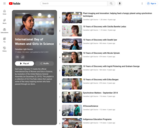
This real world task requires students to compare differing interest rates.
- Subject:
- Math
- Material Type:
- Activity/Lab
- Provider:
- Illustrative Mathematics
- Provider Set:
- Illustrative Mathematics
- Author:
- Illustrative Mathematics
- Date Added:
- 05/01/2012

This real world task requires students to compare differing interest rates.

An interactive applet and associated web page that demonstrate the interior angles that are formed where a transversal crosses two lines. The applets shows the two possible pairs of angles in turn when in animation mode. By dragging the three lines, it can be seen that the angles are supplementary only when the lines are parallel. When not in animated mode, there is a button that alternates the two pairs of angles. The text on the page discusses the properties of the angle pairs both in the parallel and non-parallel cases. Applet can be enlarged to full screen size for use with a classroom projector. This resource is a component of the Math Open Reference Interactive Geometry textbook project at http://www.mathopenref.com.

An interactive applet and associated web page that demonstrate the relationship of the interior and exterior angles of a polygon. The applet shows an irregular polygon where one vertex is draggable. As it is dragged the interior and exterior angles at that vertex are displayed, and a formula is continuously updated showing that they are supplementary. The tricky part is when the vertex is dragged inside the polygon making it concave. The applet shows how the relationship still holds provided you get the signs of the angles right. Applet can be enlarged to full screen size for use with a classroom projector. This resource is a component of the Math Open Reference Interactive Geometry textbook project at http://www.mathopenref.com.

An interactive applet and associated web page that demonstrate the concept of the interior of an angle. The applet shows an angle where the user can drag the points that define it. A free-floating point can be dragged, and any time it is in the interior of the angle it 'lights up' to show that fact. It can be seen that the interior region stretches out to infinity even if the angle is defined by finite-length segments. Applet can be enlarged to full screen size for use with a classroom projector. This resource is a component of the Math Open Reference Interactive Geometry textbook project at http://www.mathopenref.com.

"Interland est un jeu pédagogique destiné aux enfants de 8 à 12 ans (et à leur parents). Cet outil ludique a pour mission de développer l'esprit critique des jeunes internautes au travers de quiz, de puzzles, d'énigmes... et de beaucoup d'action !"
"Play your way to Internet Awesome.
Interland is an adventure-packed online game that makes learning about digital safety and citizenship interactive and fun—just like the Internet itself. Here, kids will help their fellow Internauts combat badly behaved hackers, phishers, oversharers, and bullies by practicing the skills they need to be good digital citizens."

Interland is an engaging and fun online site that makes digital citizenship and safety lessons into a game. There are four fun games to choose from.

This Back to School Package sets you up to have an inclusive classroom,
Here is a list of all eleven resources included in this amazing inclusive classroom pack:
Intermediate Words of Affirmation Word Search
Intermediate Back to School Mindfulness Colouring Pages
Intermediate Inclusive Classmate Challenge Cards
Intermediate What Makes Me Special Social Media Template
Intermediate Words of Positivity Whole Class Activity
Intermediate Canadian Teacher Planner 2021-2022 School Year
Intermediate Inclusive Class Meet the Teacher PowerPoint
Back to School Intermediate Student Checklist
Canadian Teaching Calendar 2021-2022 School Year
Back to School Intermediate Teacher Checklist
Welcome Back to School Intermediate Meditation Activities

"Guided by the International Convention on the Elimination of All Forms of Racial Discrimination, the International Day for the Elimination of Racial Discrimination recognizes that the injustices and prejudices fueled by racial discrimination take place every day. Observed annually on March 21, it commemorates the day police in Sharpeville, South Africa, opened fire and killed 69 people at a peaceful demonstration against apartheid "pass laws" in 1960."
This site from the Government of Canada explains the day, racial discrimination, provides tips to fight racism, provides as history of racism in Canada, and provides a digital toolkit.

16 Days of Activism
Beyond December 6
Mini Lesson for "Because We Are Girls"
Mini Lesson "Into the Light"
Mini Lesson for "Status Quo"
International Day for the Elimination of Violence Against Women
Murdered and Missing Indigenous Women
A Better Man Study Guide

The International Day of Mathematics (IDM) is a worldwide celebration. Each year on March 14 all countries will be invited to participate through activities for both students and the general public in schools, museums, libraries and other spaces.

Many videos of women in STEM.
Find career profiles, interviews, and lessons here: https://bit.ly/2IuhAfl (copy and paste this url into your web browser)

This week, Stan Muller teaches you how intellectual property law functions internationally. Like, between countries. Well, guess what. There's kind of no such thing as international law. But we can talk about treaties. There are a bevy of international treaties that regulate how countries deal with each others' IP. The upside is that this cooperation tends to foster international trade. The downside is, these treaties tend to stifle creativity by making it harder to shorten copyright terms. You win some, you lose some.

An activity book all about the International Space Station

This is an activity about structures in space. Learners will construct two different types of trusses to develop an understanding of engineering design for truss structures and the role of shapes in the strength of structures. For optimum completion - this activity should span 3 class periods to allow the glue on the structures to dry. This is engineering activity 1 of 2 found in the ISS L.A.B.S. Educator Resource Guide.

This is an activity about keeping astronauts safe from debris in space. Learners will investigate the relationship between mass, speed, velocity, and kinetic energy in order to select the best material to be used on a space suit. They will apply an engineering design test procedure to determine impact strength of various materials. This is engineering activity 2 of 2 found in the ISS L.A.B.S. Educator Resource Guide.

This is an activity about using solar arrays to provide power to the space station. Learners will solve a scenario-based problem by calculating surface areas and determining the amount of power or electricity the solar arrays can create. This is mathematics activity 1 of 2 found in the ISS L.A.B.S. Educator Resource Guide.

This is an activity about the orbit of the ISS around the Earth. Leaners will investigate the relationship between speed, distance, and orbits as they investigate how quickly the ISS can travel to take a picture of an erupting volcano. This is mathematics activity 2 of 2 found in the ISS L.A.B.S. Educator Resource Guide.

This is an activity about orbital mechanics. Learners will investigate how lateral velocity affects the orbit of a spacecraft such as the ISS. Mathematical extensions are provided. This is science activity 1 of 2 found in the ISS L.A.B.S. Educator Resource Guide.

This is a lesson about crystal growth. Leaners will grow a sugar crystal and learn how this relates to growing protein crystals in space. The lack of gravity allows scientists on the space station to grow big, almost perfect crystals, which are used to help design new medicines. This is science activity 2 of 2 found in the ISS L.A.B.S. Educator Resource Guide.

This is a lesson about the technology as it relates to heat transfer (conduction and convection)on the International Space Station. Learners will investigate how to build a space suit that keeps astronauts cool. This is technology activity 1 of 2 found in the ISS L.A.B.S. Educator Resource Guide.